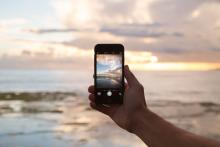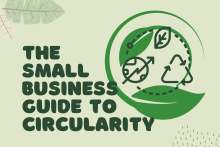The Buy Nothing Project is an international network started in 2013 by two friends, Rebecca and Liesl,
in Washington, USA, which is now a worldwide social movement of over 4 million people in 44 countries. 6,000 Facebook groups are run by 12,000 volunteers, all working to expand the gift economy mindset, by giving and sharing items and skills. ‘Buy nothing, share everything’ is their motto.
The concept of the three R’s is quite well known – Reduce, Reuse, Recycle – and it is a major theme in our cleaning guides in issue 191.
The Buy Nothing Project focuses on Reduce, at the top of the hierarchy, but also talks about Refuse and Rethink.
“It’s clear that collectively our ‘consumer muscle’ has been overused, and we want to show the world that it’s possible to use that muscle in revolutionary ways: by sharing more, buying less, and creating a social safety net with our neighbors so we can pool resources and share radically for the common good.” (Buy Nothing app co-founder Liesl Clark)
In May 2021, it announced the launch of a beta version of a new BuyNothing app, which will allow participants to move beyond using Facebook groups, and also to easily quantify how much each community is saving from waste.
We got in touch with Cilente in Derby who has recently started a new group, to find out how the Buy Nothing Project differed from similar models of local sharing, and how it has been to start a group from scratch.
How is Buy Nothing different to Freegle/Freecycle?
Although Freecycle also has localised groups, they are usually much bigger than the Buy Nothing groups. The idea is to create hyper-local gifting economies (including gifts of time and expertise – not just goods) which foster a sense of community. Members are encouraged to engage with each other and 'first come first served' is therefore discouraged (but not disallowed).





